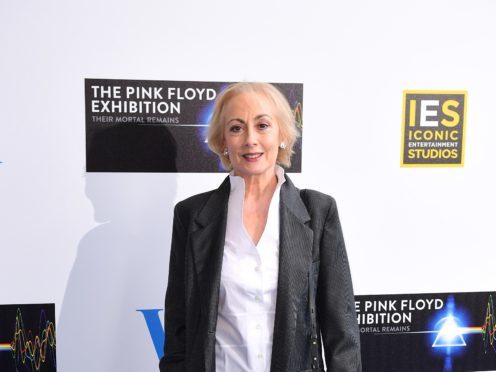Actress Paula Wilcox told of how she once hit back against a sexually provocative remark from the late comedian Benny Hill, and how she never had “any trouble” with him after that.
Wilcox, 68, has also opened up about the difficulties of being a young woman in the TV industry in the 1970s, saying that they “basically just got groped all the time” by men.
Appearing in a panel called Legendary Women Of Television Reveal All at the Edinburgh TV Festival, the TV star said that she took care of herself as a young actress by being “quite bossy”.
A panel of legendary women of TV ready to reveal all now in The Sidlaw @arlenephillips @AmplifyDot #EdTVFest pic.twitter.com/PRGqiybwgR
— EdinburghTVFestival (@EdinburghTVFest) August 23, 2018
Wilcox, known for sitcoms including Man About The House, Upstart Crow, The Lovers and Girlfriends, said: “I was in The Benny Hill Show, I was in a sketch with him.
“We met, and he was very nice actually, he was a very clever writer, and he was introduced to me, ‘Benny, this is Paula Wilcox…’
“I was very young, probably about 20, and he said to me, ‘Ooh, Paula Will-Cox, eh?’ And I said, ‘Paula Won’t-Cox!’”
She added: “I never had any trouble after that, he was fine with me.”
Discussing the Me Too movement, Wilcox told the audience of a time in the early 2000s that two younger male actors she was working with had told her of their difficulties in approaching women they really liked.
She said: “They felt a little bit powerless, and a bit confused how far you could push it if you’re keen on someone and wanted to see them again.
“They asked me what it was like in the 1970s with men, they asked if they had difficulty talking to (women).”
Wilcox added: “I said, ‘well you basically just got groped all the time’.”
But she said she handled herself by giving people a “put-down”, and also that she would “avoid situations”.
Actress Paula Wilcox – I worked with Benny Hill once, when introduced he said ‘ooooh Paula Will-cox’, I said noooo Paula Won’t-cox! #legendarywomenoftv #sexism #EdTVFest
— EdinburghTVFestival (@EdinburghTVFest) August 23, 2018
“I remember going to a rehearsal room once, and only one of the actors had shown up, and I thought, I’m not going to stay in this room alone with him, so I left my bag and went to the loo,” she said.
Wilcox was joined on the panel by choreographer and presenter Arlene Phillips, film-maker Olivia Lichtenstein, Channel 4’s head of news and current affairs Dorothy Byrne and TV presenter Selina Scott, with BBC Radio 1Xtra DJ Dotty as the panel’s chairwoman.
Byrne told of an experience of sexual harassment on her first day working in TV more than three decades ago.
She said: “On my first day in TV, my female boss told me that I would go out and learn how to be a director, and that the man taking me out would sexually assault me, but I wasn’t to take it personally, because he sexually assaulted everybody.
“And sure enough, he did sexually assault me, and in those days, how was I to make a complaint to my boss because she told me that would happen to me?
“He put his hand up my skirt, so I took his hand back down my skirt and said ‘no thank you’.”
She added: “That was the end of it. I’m not saying there weren’t worse things that happened… but I can honestly tell you that I’ve never said to anybody that was starting out at Channel 4 that tomorrow you’ll learn how to do your job, and someone will sexually assault you.
“So things have improved, I think.”
